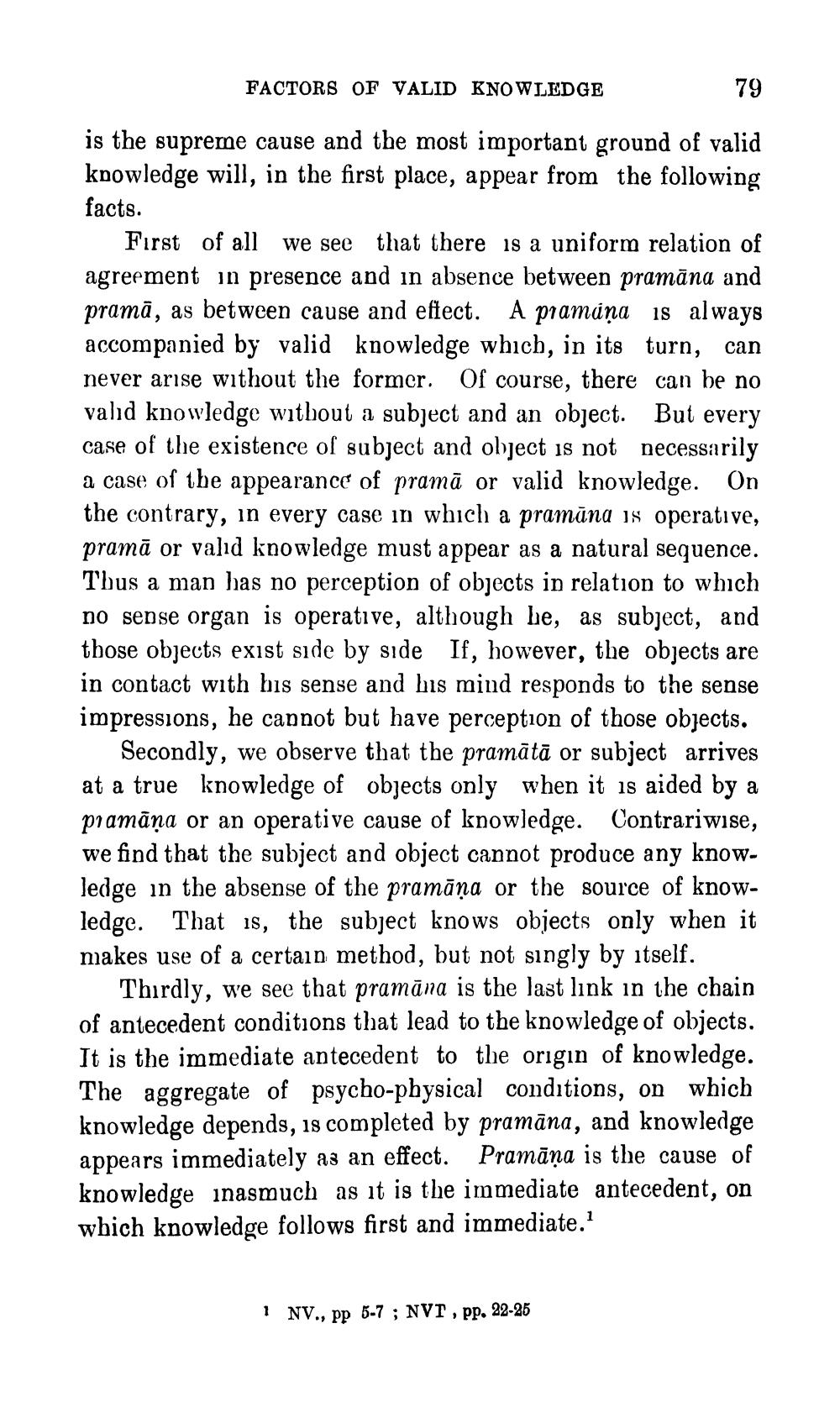________________
FACTORS OF VALID KNOWLEDGE
79
is the supreme cause and the most important ground of valid knowledge will, in the first place, appear from the following facts.
First of all we see that there is a uniform relation of agreement in presence and in absence between pramāna and pramā, as between cause and effect. A pramana is always accompanied by valid knowledge which, in its turn, can never arise without the former. Of course, there can be no valid knowledge without a subject and an object. But every case of the existence of subject and object is not necessarily a case of the appearance of pramā or valid knowledge. On the contrary, in every case in which a pramāna is operative, pramā or valid knowledge must appear as a natural sequence. Thus a man has no perception of objects in relation to which no sense organ is operative, although he, as subject, and those objects exist side by side If, however, the objects are in contact with his sense and his mind responds to the sense impressions, he cannot but have perception of those objects.
Secondly, we observe that the pramātā or subject arrives at a true knowledge of objects only when it is aided by a pramāņa or an operative cause of knowledge. Contrariwise, we find that the subject and object cannot produce any knowledge in the absense of the pramāņa or the source of knowledge. That is, the subject knows objects only when it makes use of a certain method, but not singly by itself.
Thirdly, we see that pramāna is the last link in the chain of antecedent conditions that lead to the knowledge of objects. It is the immediate antecedent to the origin of knowledge. The aggregate of psycho-physical conditions, on which knowledge depends, 18 completed by pramāna, and knowledge appears immediately as an effect. Pramāṇa is the cause of knowledge inasmuch as it is the immediate antecedent, on which knowledge follows first and immediate.
I NV., pp 5-7 ; NVT, pp. 22-25




